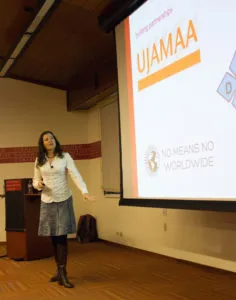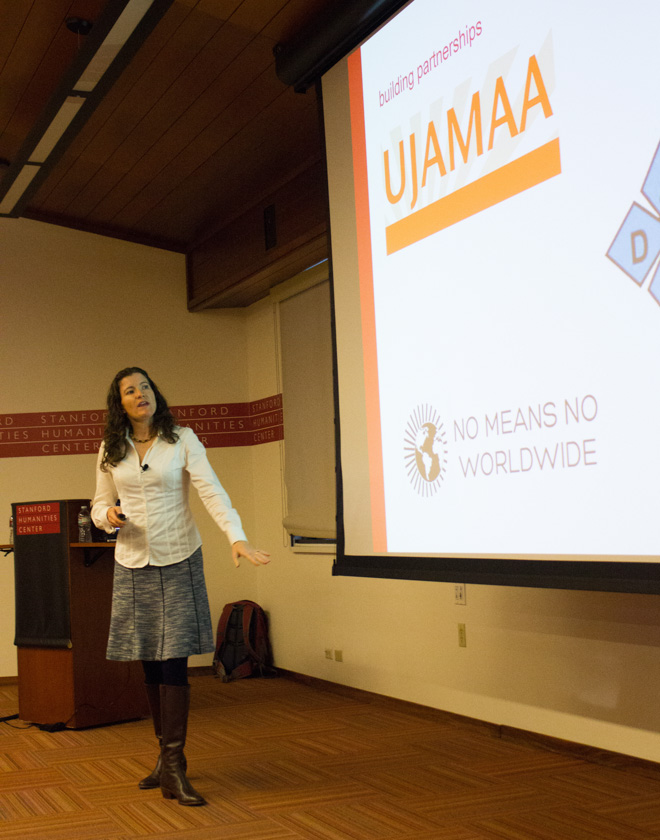Stanford researchers have found that trainings designed for young girls focusing on empowerment and for young boys focusing on gender norms have decreased sexual violence in Nairobi settlements.

The Michelle R. Clayman Institute for Gender Research held its quarterly symposium on Thursday, focusing on these findings discovered through the work of Clea Sarnquist, senior research scholar and lecturer of infectious disease in pediatrics and Mike Baiocchi, assistant professor in the Stanford Prevention Research Center to prevent gender-based violence in the unplanned settlements of Nairobi.
The interdisciplinary team of Stanford researchers uses an empirical approach to develop effective intervention prevention strategies.
Featuring approximately 3,500 girls and 1,000 boys between the ages of 10 and 14, the current study is the largest of its kind ever. The girls’ program concentrates on empowerment, situational awareness, verbal skills and physical defense. The boys’ program emphasizes healthy gender norms, positive masculinity and bystander intervention.
The trainers for each program all come from the settlements themselves.
“This is a key piece of building intervention prevention,” said Sarnquist. “There is community buy-in and community input, which ensures that the program stays relevant.”
The trainers undergo a rigorous selection process, followed by nearly a year of preparation before they are able to teach classes independently in order to maintain the study’s quality and consistency.
As a result of this program in five settlements, rape incidence decreased from 7.3 percent to 3.6 percent. Baiocchi discussed indirect consequences, including a decrease in unplanned pregnancy and a decrease in sexually transmitted infections.
“[The study] is so cross-cutting and related to almost every bad outcome you can think of; however, it is also amenable to change,” Sarnquist said. “It really feels like we could make a difference across many aspects of somebody’s life.”
“Being able to really quantify the case for these programs to be adapted and spread is really important to me,” Baiocchi echoed.
The researchers responded to whether findings in Nairobi can be applicable to the culture of sexual assault on college campuses in the United States. They explained consistency in the basic theories of intervention prevention, including empowerment and physical defense across cultural boundaries. The difficulty comes with determining what works concretely on a local scale and how to deploy effective programs.
Contact Mini Ruda at mruda ‘at’ stanford.edu.
